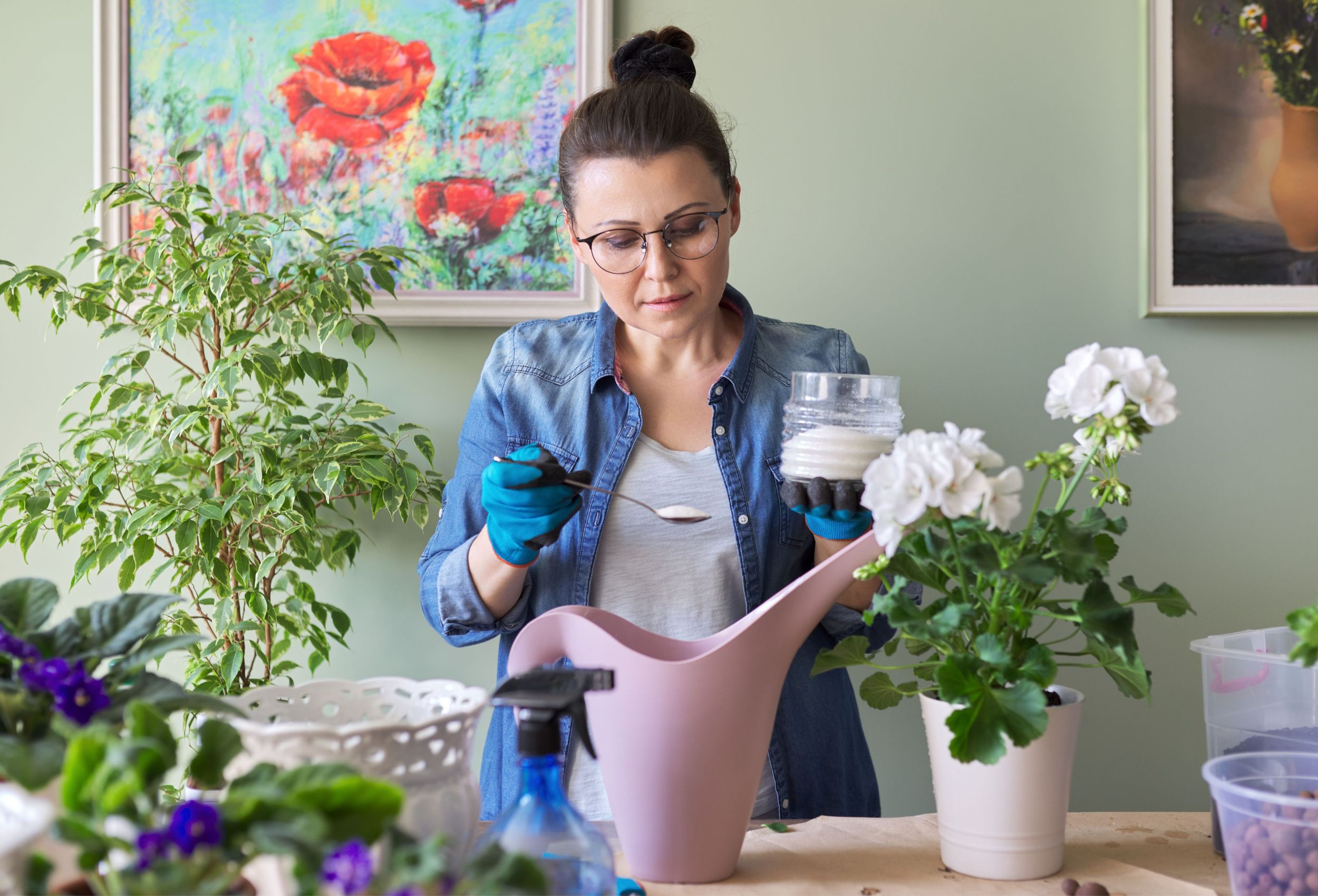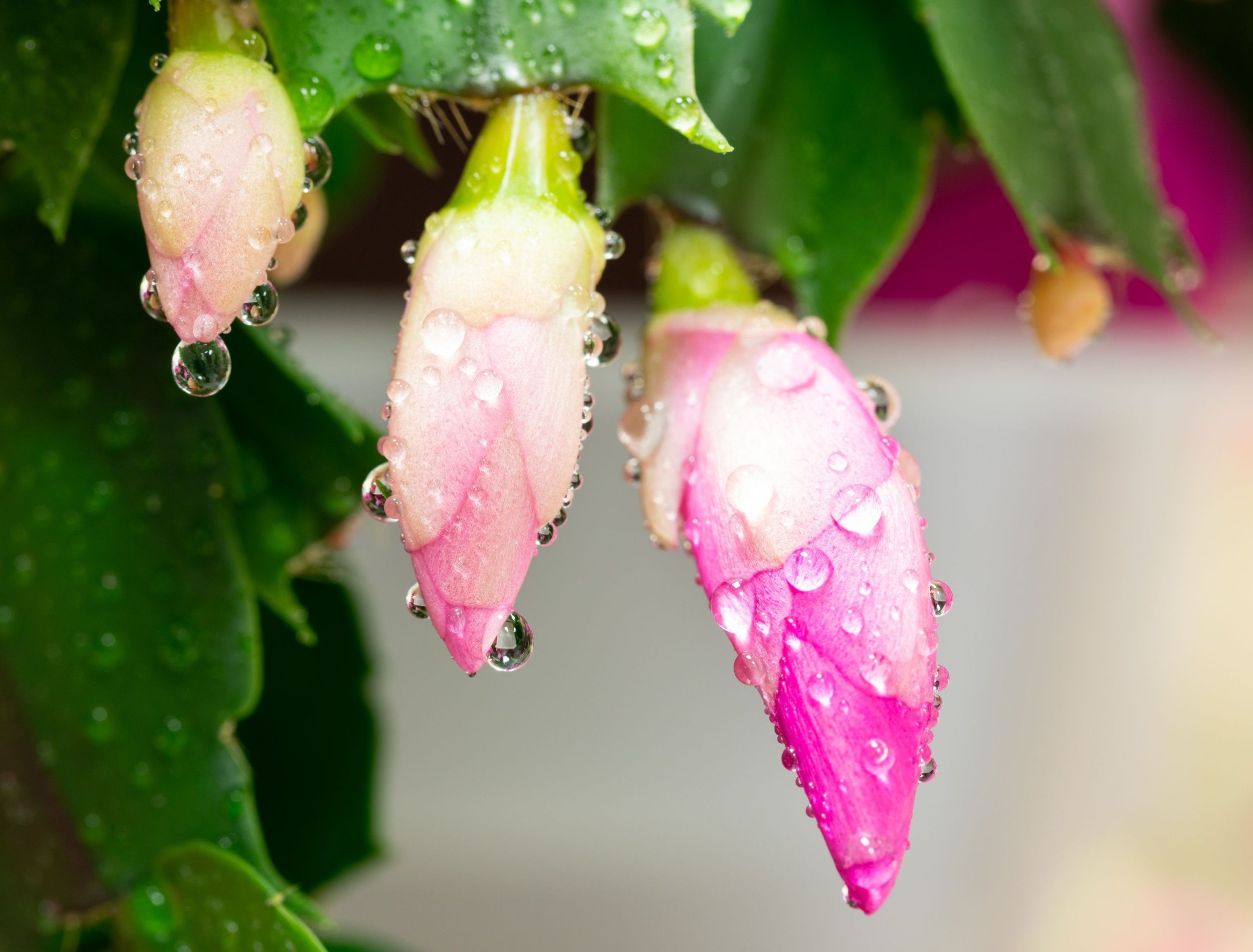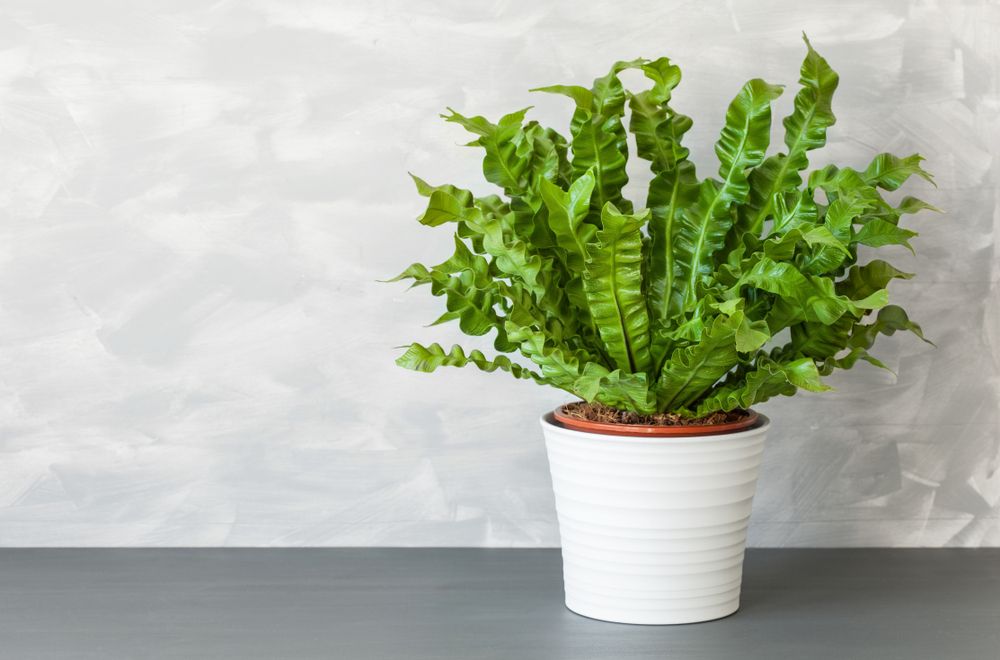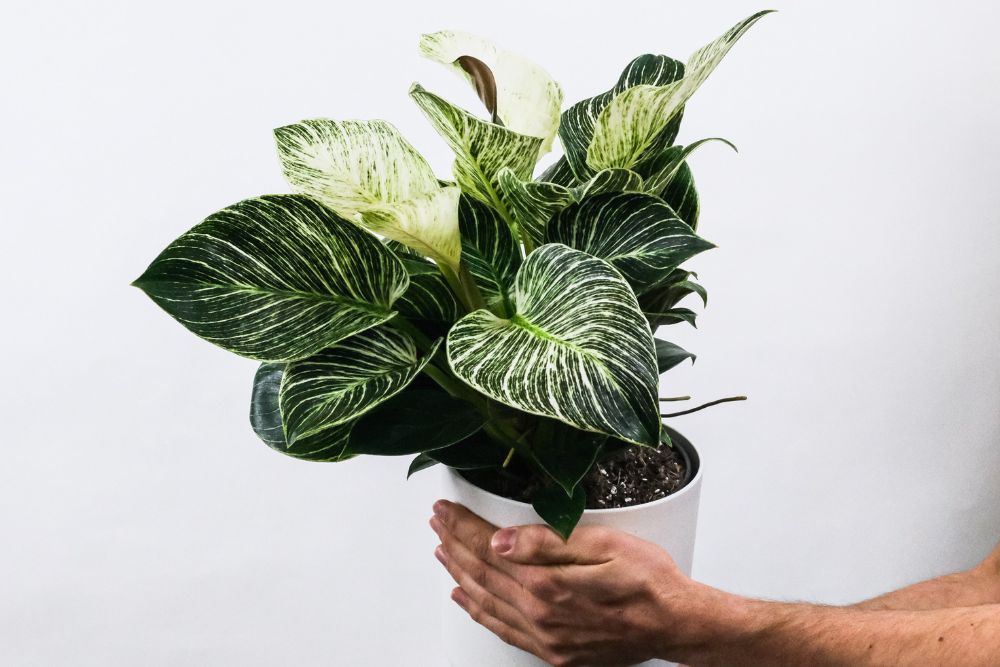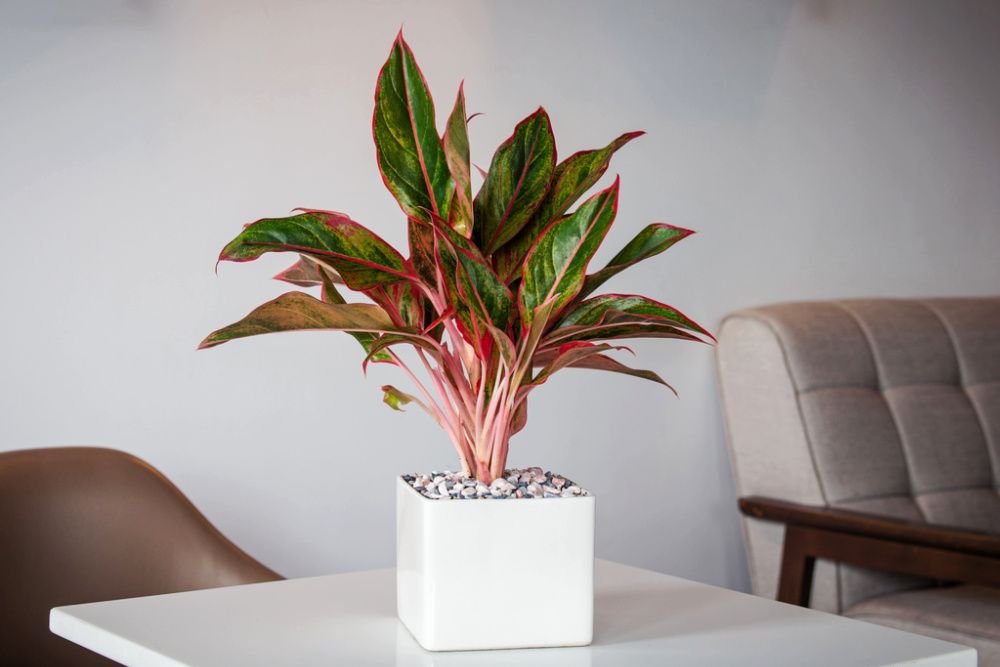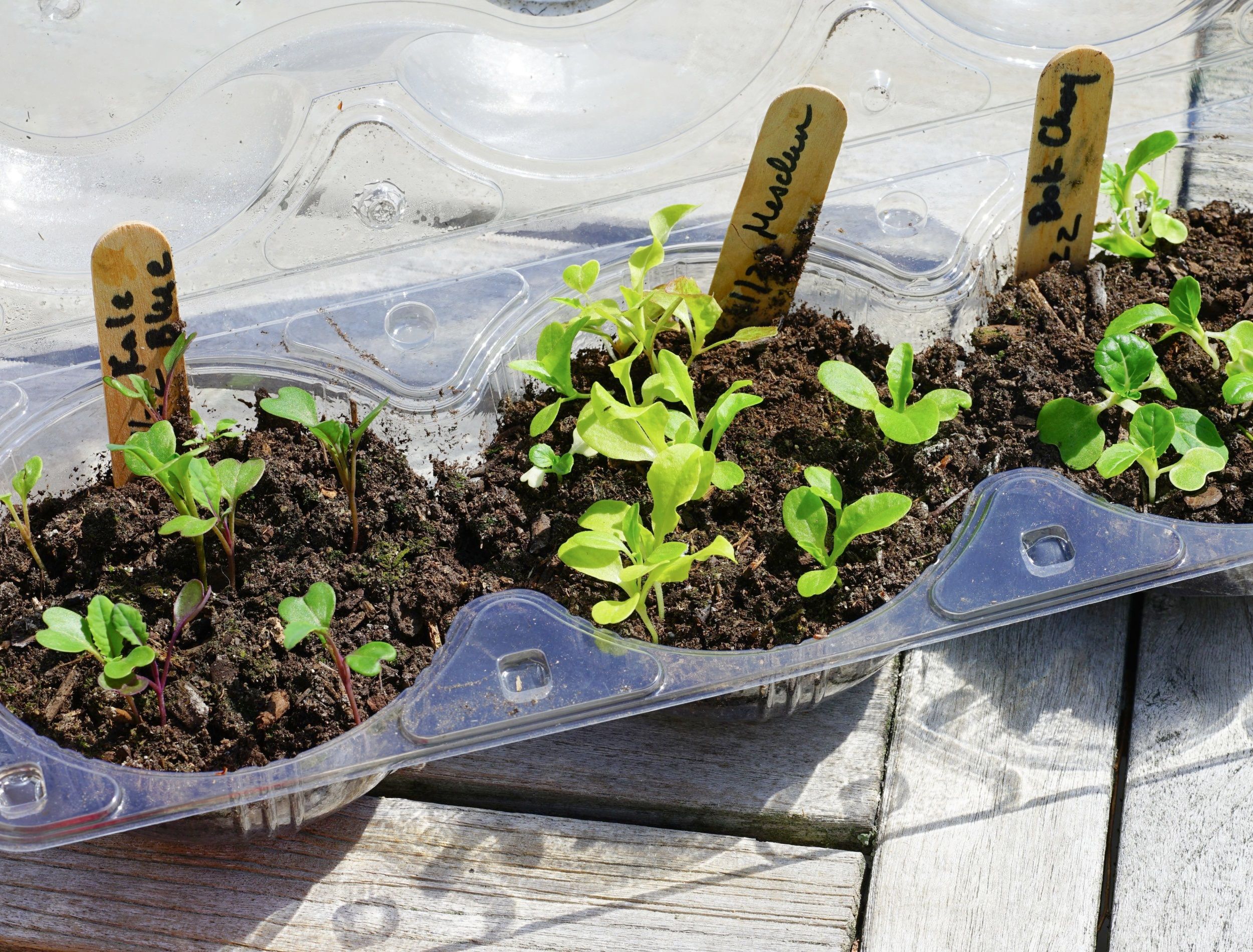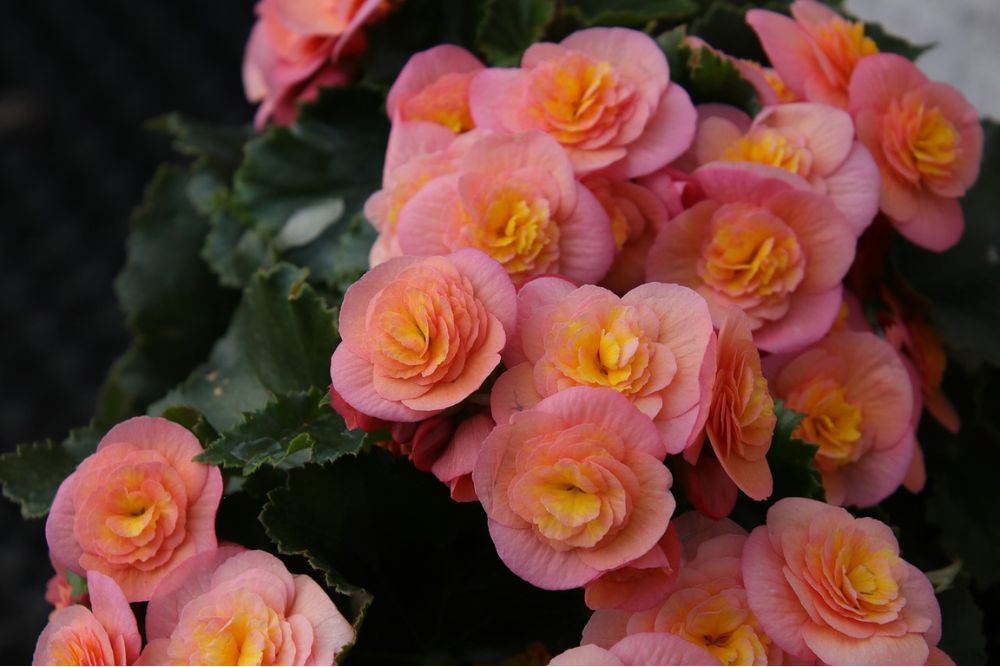Houseplants are a great addition to any home. Not only do they bring the outdoors in, but they can also help improve and purify the air. But sometimes, they may need a little boost.
If you are a passionate houseplant enthusiast looking to get the most out of your plants, then Epsom salt could be just what you need! This seemingly simple solution has many benefits that can help ensure your houseplants are healthy and thriving. From aiding germination to boosting nutrient uptake, here are six reasons to use Epsom salt in your houseplants.
More Blooms
Image credits: James Jiao via Shutterstock
Using Epsom salt in your houseplants may give your plant a chance at a higher yield of flowering. This is because it contains magnesium and sulfur, which help nourish the cells in your houseplants. Epsom salt helps give them stronger roots and stems which can promote flower growth.
Greener Foliage
Image credits: Olga Miltsova via Shutterstock
The nutrients in Epsom salts may also help your houseplants grow greener. The extra magnesium the salt provides helps promote strong cell division and increases chlorophyll production, making for healthier plants with rich foliage.
Less Fertilizer
Image credits: feey via Unsplash
The use of Epsom salts can also reduce the total amount of fertilizer your plants need. This is because Epsom salt acts as a natural nutrient supplement that can replace some of the nutrients in traditional fertilizers. Additionally, it can also make fertilizers more effective.
Increase Nitrogen and Phosphorous Uptake
Image credits: Mid Tran Designer via Shutterstock
Using Epsom Salt in your houseplants can improve phosphorus and nitrogen uptake. These two nutrients are essential for plant health, as they act as an energy source and help plants grow strong.
Germinate Seeds Faster
Image credits: EQRoy via Shutterstock
Epsom salt can also help seeds germinate faster and more effectively. The extra magnesium in the salt helps speed up the germination process, resulting in quicker growth.
Vitamin Production
Image credits: Marjon Besteman via Pixabay
Finally, using Epsom salt in your houseplants can help produce vitamins. The extra sulfur in the salt helps promote vitamin production, which is especially important for flowering plants.
How to Use Epson Salt in Your Houseplants
Image credits: Amy Shaughnessy via Canva
First, test your soil before planting. Sending a soil sample to a garden center can help determine if there are any pH or nutrient issues that could impact your plants' health. Do this every one to three years. Do not skip this step. If your houseplants don't lack any nutrients, you shouldn't give them Epsom salt. This can kill your houseplant.
Next, dilute 2 tablespoons of Epsom salt in 1 gallon of water. Then use this mixture to feed houseplants monthly.
Only use a small amount of Epsom salt -- too much can harm your plants. Keep an eye on how your plants respond to the mixture and adjust accordingly. With a little bit of care and attention, your houseplants will thrive!
The Flip Side
Image credits: irynakhabliuk via Canva
While it may be tempting to give your houseplants a spicy little kick with some Epsom salt, it's worth noting that some experts do not endorse this method.
Instead, they suggest providing a balanced fertilization routine that contains all of their essential macro- and micronutrients. They advise against going overboard with extra nutrients like magnesium and sulfur, saying it's unnecessary and can do more harm than good. Excessive fertilizers will build up in the container over time, leading to salt damage on the foliage.
In addition, research has shown that excessive applications of Epsom salts can lead to leaf scorch or other toxicities. Because Epsom salts dissolve quickly, they may not provide long-term benefits; you may need to reapply often depending on your soil's needs.
Lastly, if you have your houseplants outdoors, over-applying Epsom salts can result in nutrient runoff into local waterways. Use the recommended dosage for your plants and soil type to avoid spills or runoff when applying.
Seasoned Greetings!
Utilizing Epsom salt in your houseplants could be a great way to ensure they are healthy and thriving all year round! From helping seeds germinate faster to reducing fertilizer use, many potential benefits come with adding this simple yet powerful solution to your plants. But take some caution and test your soil first. Too much of a good thing can turn bad, fast!
So, if you’re looking for ways to make your houseplants grow bigger and stronger, consider incorporating Epsom salt into their routine. Don’t forget to share this article with your friends and family! Do you have any tips or tricks for using Epsom Salt in your houseplants? Leave a comment below!

